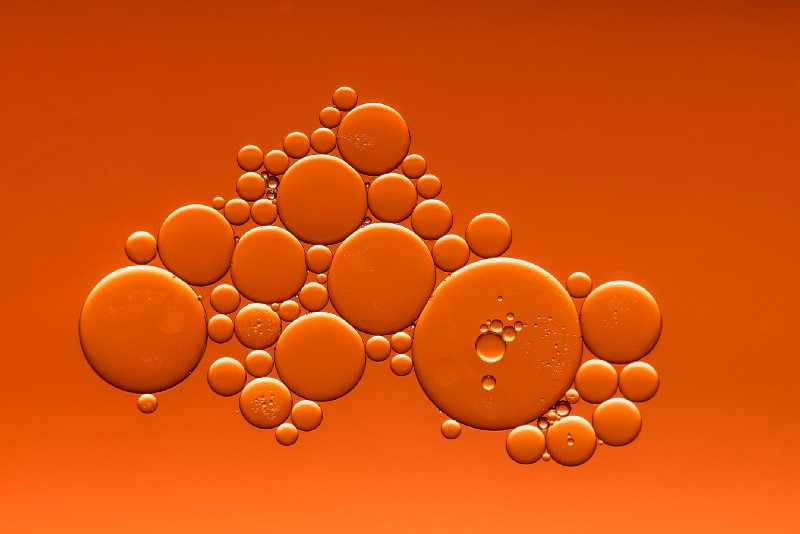
Should we eat fats or avoid them? What do they do for our bodies? We spoke with nutritionist, Kristy Hall, to get to the bottom of the good, bad, which, and when.
Splendid Spoon: Why are we scared of fats?
Kristy Hall: Many of us grew up being told that fats make us fat, clog our arteries, and give us heart disease. That theory was based on faulty research that’s since been debunked, but the updated message didn’t get out.
SS: What’s the difference between good fats and bad fats?
KH: It’s all about quality. “Good” fats are stable fats. Stable fats are less likely to be oxidized (essentially damaged) by heat and light. They’re also more saturated than other fats. My favorite saturated fats are coconut oil and avocado oil.
Monounsaturated or polyunsaturated fats are best used in salad dressings or on vegetables after you’ve cooked them. When buying these more fragile fats, it’s important to buy cold-pressed, organic oils. Some fabulous oils are walnut oil and extra virgin olive oil. If you’re using oil for flavor, I recommend mid-season extra virgin olive oil — it has a beautiful peppery taste, whereas late season oil is more mild.
Always buy oil in small quantities and in dark glass jars (light can damage oil!). Also, be sure to store oils away from the stove. The cabinets that flank the stove get really hot, and that damages fragile oils. These simple steps help keep your oils safe. To check your oils are good, use your nose! If it smells rancid, toss it out.
SS: What do healthy fats do for our bodies?
KH: The most important biochemical process in our body is energy production, and for that we use either carbohydrates or fats. The ketogenic diet is one where fat is the primary energy source, but you still use fat for energy if you eat a more balanced diet.
Our cell membranes are made of fats. The healthier the membrane, the easier it is for nutrients to be delivered and waste to be removed from the cell. You need healthy cell membranes to prevent certain nutrient deficiencies and toxicity issues.
Another key function of fat is the production of hormones, including sex hormones and hormones of the adrenal glands (think cholesterol, estrogen, testosterone, cortisol).
Furthermore, the brain needs healthy fats for optimal function. A healthy brain is a happy brain!
SS: How much healthy fat should we eat?
KH: The answer depends on what type of diet you’re following. Fat and carbs are both energy sources. Ideally, if you’re eating a carb-heavy diet, you shouldn’t eat a fat-heavy diet, and, visa versa. For people in good health, I recommend a balanced Mediterranean diet where you get about 30% of your calories from fat.
When calculating how many calories you’re getting from fat, multiply the grams of fat by nine to yield the calorie count. You can work that math backwards if you have a caloric goal for the day. For example, if you want to have 2000 calories per day, you want 30% of those to be from fat, so you want to get 600 calories (or 67 grams) from fat. If you’re getting most of your energy from carbs, you can keep your fat intake as low as 20%, or in this example, 44 grams.
SS: If we’re looking to lose weight, should we still eat healthy fats?
KH: Absolutely! You need good fats for brain function and healthy hormone levels. You also need fat to absorb and utilize fat-soluble vitamins A, D, E, and K. Our modern food supply is often very low in these critical nutrients.
You can support your body’s ability to access and use these vitamins by having healthy fats with each meal. A good question to ask yourself is not how much fat you’re eating, but rather what’s the quality of your food. Eating a wide range of whole, organic, plant-based foods is the ticket to optimal health and weight.
SS: What are the best sources of healthy fats?
KH: My favorites are coconut oil, coconut milk, or coconut cream. I love using them in smoothies, sauces, and dressing. Another great source is high quality extra virgin olive oil. Snacking on nuts and seeds is a superb way to get healthy fats into your diet — just make sure they weren’t roasted at high temperatures. Those fragile polyunsaturated fats can be damaged at high temperatures and oxidize, causing a cascade of inflammation in your body.
SS: High fat diets i.e. the keto diet, are all the rage. Why?
KH: A keto diet is great when faced with complex health challenges such as metabolic syndrome, diabetes, cancer, or epilepsy. It can also be great for weight loss. It’s important to note that when employing a keto diet, the depth you go to depends on the goal of the diet. If you have epilepsy, you’ll want to be more ketone heavy to achieve a reduction in seizures. If your goal is to lose weight, you won’t need to produce as many ketones. If you decide to try the keto-diet, get a nutritionist to guide you.
SS: What’s the biggest misconception about fats that you want to dispel?
KH: I want people to know that saturated fats, like coconut oil, aren’t bad! They’re stable and great for cooking. A healthy diet contains both saturated and unsaturated fats. Use unsaturated fats like olive oil to dress your salads or after cooking. And top your veggies with crushed nuts for texture. Yum!
